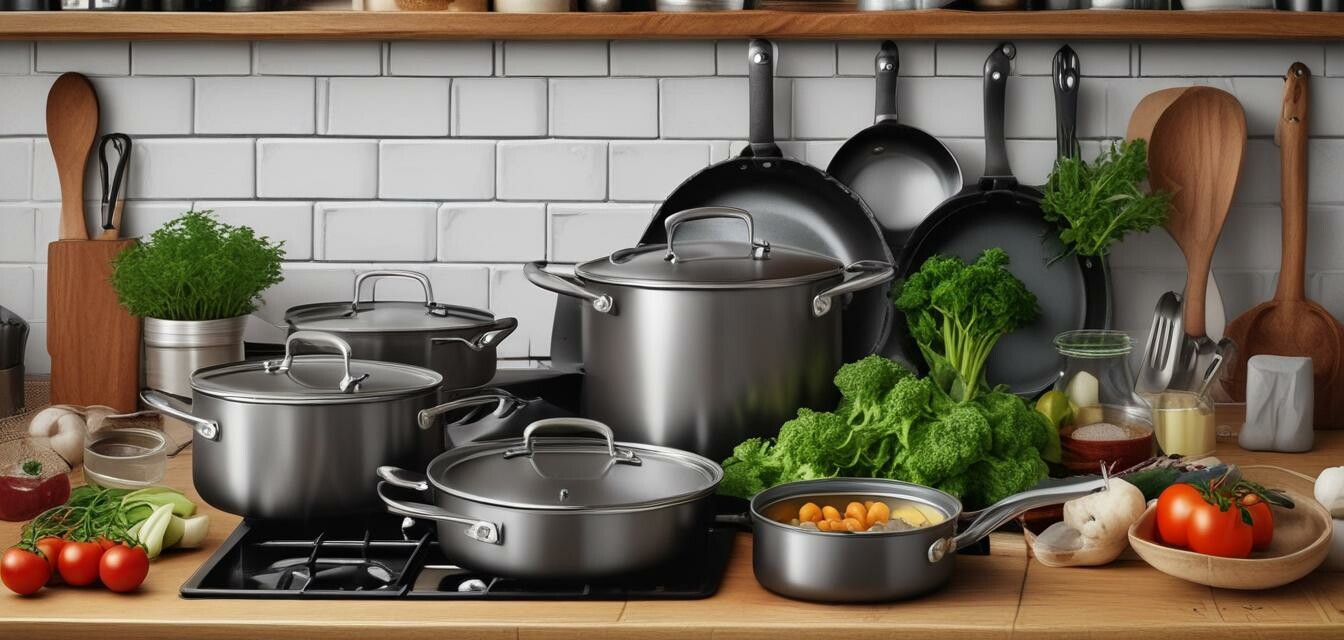
The Ultimate Guide to Cookware Materials
Key Takeaways
- Understanding different cookware materials helps enhance your cooking experience.
- Every material has its unique properties suited for specific types of cooking.
- Choosing the right cookware can improve not just taste but also cooking efficiency.
- Consider care and maintenance when selecting cookware to ensure longevity.
Choosing the right cookware is essential for anyone who enjoys cooking. With various materials available, each with unique properties, it can be overwhelming to decide which is best for your kitchen. This guide explores the most common cookware materials and their best uses, so you can make informed decisions and elevate your culinary skills.
Overview of cookware materials
Cookware comes in many different materials, each serving its purpose in cooking. Understanding these materials can help you determine which type is best for your cooking style.
| Cookware Material | Heat Conductivity | Maintenance Level | Best Uses |
|---|---|---|---|
| Stainless Steel | Good | Moderate | Searing, browning, and sautéing |
| Ceramic | Good | Low | Baking, roasting, and non-stick cooking |
| Cast Iron | Excellent | High | Slow cooking, frying, and baking |
| Non-stick | Good | Low | Frying and cooking delicate items like eggs |
Types of cookware materials
1. Stainless steel
Stainless steel cookware is a popular choice due to its durability and resistance to rust and staining. It conducts heat well and is perfect for tasks like sautéing and browning.
Pros
- Durable and long-lasting
- Non-reactive with foods
- Easy to maintain
Cons
- Can be expensive
- Not non-stick, requiring added fat for cooking
2. Ceramic
Ceramic cookware is made from naturally occurring materials and is known for its non-stick properties. It is great for those looking for healthier cooking options without using excess fats.
Pros
- Non-stick surface
- Low maintenance
- Environmentally friendly options available
Cons
- Can chip easily
- Not suitable for high-heat cooking
3. Cast iron
Cast iron is renowned for its heat retention and even cooking. It can withstand high temperatures and is excellent for frying and baking. Proper care can make it last for generations.
Pros
- Exceptional heat retention
- Versatile across different cooking methods
- Gets better with age, developing a natural non-stick surface
Cons
- Heavy and can be cumbersome to handle
- Requires regular seasoning and maintenance
4. Non-stick
Non-stick cookware is coated with a synthetic material that allows for easy food release. It is perfect for cooking delicate items like eggs or pancakes. However, it requires careful handling to avoid scratches.
Pros
- Easy to clean
- Requires less cooking fat
- Lightweight and easy to handle
Cons
- Durability can vary; some may scratch easily
- Can have issues at high temperatures
Choosing the right cookware for your needs
When selecting cookware, consider your cooking style and frequently prepared meals. You may need a combination of materials to suit different dishes. For example, a stainless steel pan for browning meats and a non-stick skillet for delicate omelets. Check out our Cookware Sets page for more insights on how to choose combinations.
Care and maintenance tips
Taking care of your cookware increases its lifespan and efficiency:
- Stainless Steel: Avoid abrasive cleaners; instead, use mild detergent and a soft sponge.
- Ceramic: Wash gently to preserve the non-stick surface, and avoid metal utensils.
- Cast Iron: Wash with minimal soap and season regularly with oil.
- Non-stick: Use non-metal utensils and avoid stacking dishes without protective layers.
Conclusion
Selecting the right cookware materials is vital for a fulfilling cooking experience. By understanding the characteristics of stainless steel, ceramic, cast iron, and non-stick, you can make choices that match your cooking style. Always prioritize the maintenance of your cookware to ensure longevity.
For more information on essential cooking tools, be sure to explore our Cooking Buying Guides that help you make informed purchases as you enhance your kitchen.